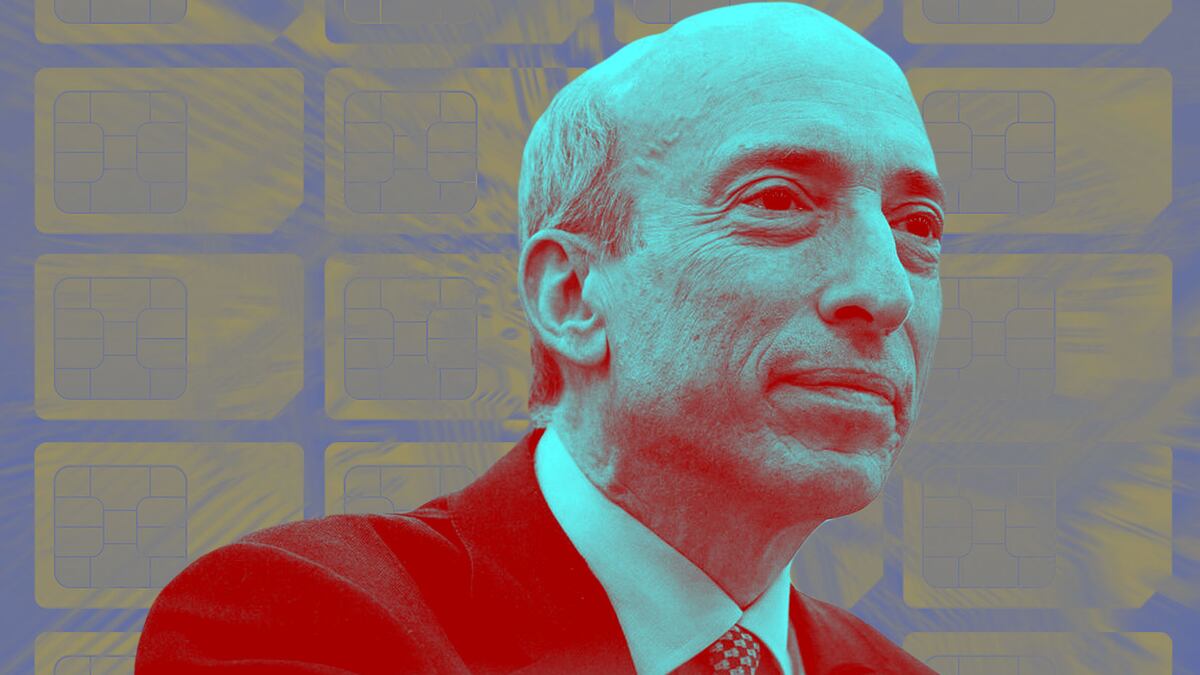- The DeFi Education Fund and a small leather-goods retailer in Texas have sued the SEC.
- The retailer, Beba, once used an airdrop to distribute tokens that function as loyalty points.
- Among other things, the plaintiffs are asking the SEC to state that airdrops are not securities transactions.
Battered by a US crackdown, the crypto industry is tired of playing defence against the Securities and Exchange Commission.
That’s why the DeFi Education Fund has been trying for months to find the perfect plaintiff with both the standing and backbone to take on Gary Gensler’s crypto-hostile agency.
“The difficulty is always finding the right plaintiff who wants to take on SEC,” said Amanda Tuminelli, chief legal officer at the fund, one of several Washington-based crypto advocacy organisations. “You’re poking the bear by putting your name on a complaint.”
Tuminelli soon found the model firm: an apparel company founded by two brothers based in Waco, Texas.
On Monday, the pair sued the SEC in federal court in Texas over the regulator’s treatment of airdrops and its failure to create rules specific to the crypto industry.
The company, Beba, sells bags and wallets made by a pair of Kenyan craftspeople, according to its website.
But it also dabbles in crypto: it has released NFTs, and it recently airdropped a token to people who had used other crypto services. Anyone who holds 200 of its eponymous tokens can purchase one of the company’s duffel bags at a discount.
“Beba fears making efforts to ensure there is a robust secondary market for BEBA tokens itself because it fears the SEC will be even more likely to bring an enforcement action against it if it does so,” the lawsuit reads.
The SEC ratcheted up its enforcement of the industry after the November 2022 collapse of crypto exchange FTX. It has since sued dozens of companies for alleged violations of securities laws, from the tiny Barnbridge DAO to giants like Coinbase and Binance.
As a result, Gensler has become one of the most vilified figures in crypto. The SEC chair maintains that most tokens are akin to stocks and bonds, and therefore subject to existing securities laws.
But the industry has howled that he regulates by enforcement, making up the rules lawsuit by lawsuit.
The DeFi Education Fund had to find “good guys” — potential plaintiffs “who are doing everything they can to get regulatory clarity, and are being open and transparent about the way they’re doing it,” Tuminelli told DL News in September.
Tuminelli met one of the founders of Beba at a crypto conference.
“We were like, ‘That’s a very cool backpack, where’d you get that from?’” She recalled. “We got to know him and their company.”
She soon learned that Beba’s leaders were thinking about using digital assets as a way to market and increase their audience.
”We were like, ‘OK, well, if you’re interested in doing that, we have a way that you could potentially get a court order declaring that what you’re doing is legal, before you have to worry about the SEC coming after you,’” she said.
Beba is seeking a declaration that its airdrop and its token are not securities. Additionally, it’s challenging what it says is the SEC’s refusal to follow the Administrative Procedure Act, an arcane law that dictates how regulators can issue new rules.
“We’re actually saying that the SEC clearly has a rule written down somewhere at their agency,” Tuminelli said, “that shows there’s some policy that they have in place that they’re enforcing, and they have refused to write that down, and that is a violation of the APA.”
The SEC has argued that distributing tokens creates an “investment contract” between the issuer and the buyer — a key criteria for declaring an asset a security.
Airdrops are one of several ways that crypto projects distribute newly issued tokens. After a boom in so-called initial coin offerings in 2017, airdrops became the preferred method.
The hint of an airdrop to early users could spur activity on a nascent protocol.
The DeFi Education Fund argues that free airdrops cannot be investment contracts, as recipients don’t pay for the tokens, and often aren’t even expecting them.
That isn’t to say it is conceding that initial coin offerings, or ICOs, are, Tuminelli said.
“We’re really taking no position on ICOs,” she said. “That’s a different release mechanism, and I think airdrops present a cleaner question for the court.”
The SEC has 60 days to respond to the lawsuit.
Aleks Gilbert is DL News’ New York-based DeFi correspondent. You can reach him at aleks@dlnews.com.
